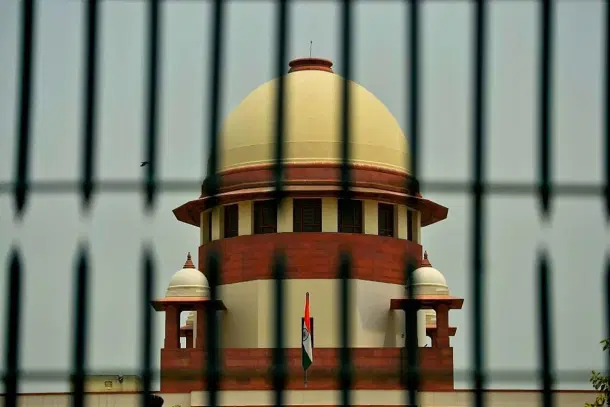News Brief
Supreme Court Orders Immediate Removal Of Stray Dogs Across Delhi-NCR
Arjun Brij
Aug 11, 2025, 01:51 PM | Updated 01:51 PM IST
Save & read from anywhere!
Bookmark stories for easy access on any device or the Swarajya app.


The Supreme Court has issued sweeping directions to the Delhi government, the Municipal Corporation of Delhi (MCD) and the New Delhi Municipal Council (NDMC) to begin removing stray dogs from all neighbourhoods in the capital, citing public safety concerns over rising rabies cases and dog bite incidents.
A Bench of Justices JB Pardiwala and R Mahadevan stressed that “all localities should be made free of stray dogs and there should not be any compromise”, directing authorities to prioritise the exercise, particularly in vulnerable areas, Bar&Bench reported.
If required, the Court said, a special force should be created to expedite the process.
The judges warned of contempt action against individuals or groups obstructing the operation, taking aim at animal rights activists for blocking previous relocation efforts.
“All these animal activists, will they be able bring back who have fallen prey to rabies,” the Bench remarked.
The order includes a mandate to establish dog shelters within eight weeks, staffed for sterilisation and immunisation, and monitored by CCTV.
Notably, “not a single stray dog should be released” once captured, and daily records of detentions must be maintained.
To improve responsiveness, the Court directed the creation of a helpline within one week for dog bite complaints, with a requirement to capture the animal within four hours of any report.
Authorities must also publish up-to-date information on rabies vaccine availability, stocks, and monthly treatment data.
The case, initiated suo motu, follows multiple fatalities from rabies in Delhi and surrounding areas.
Solicitor General Tushar Mehta, appearing for the Centre, supported urgent measures, noting that designated relocation sites had previously been stalled due to legal challenges by dog rights groups.
The matter is scheduled for further hearing in six weeks, with strict compliance expected in the interim.
It traces the legal history from the Prevention of Cruelty to Animals Act, 1960, to the Animal Birth Control (ABC) policy mandating release of sterilised dogs back to their original locations.
Experts argued that this approach fuels uncontrolled populations, public health risks, and ecological damage.
With 60 million free-ranging dogs killing wildlife and depositing hazardous waste daily, India stands apart from nations that have eradicated rabies through strict pet ownership, sheltering, and humane euthanasia
Also Read: Why Every Dog Lover Should Be Horrified By India's Stray Dog Crisis
Arjun Brij is an Editorial Associate at Swarajya. He tweets at @arjun_brij





